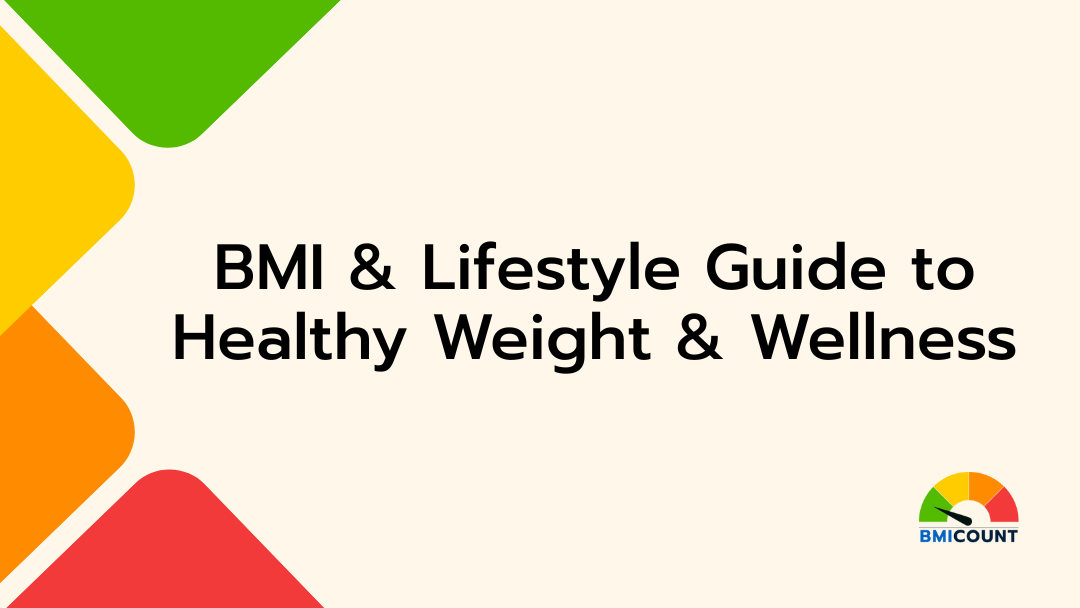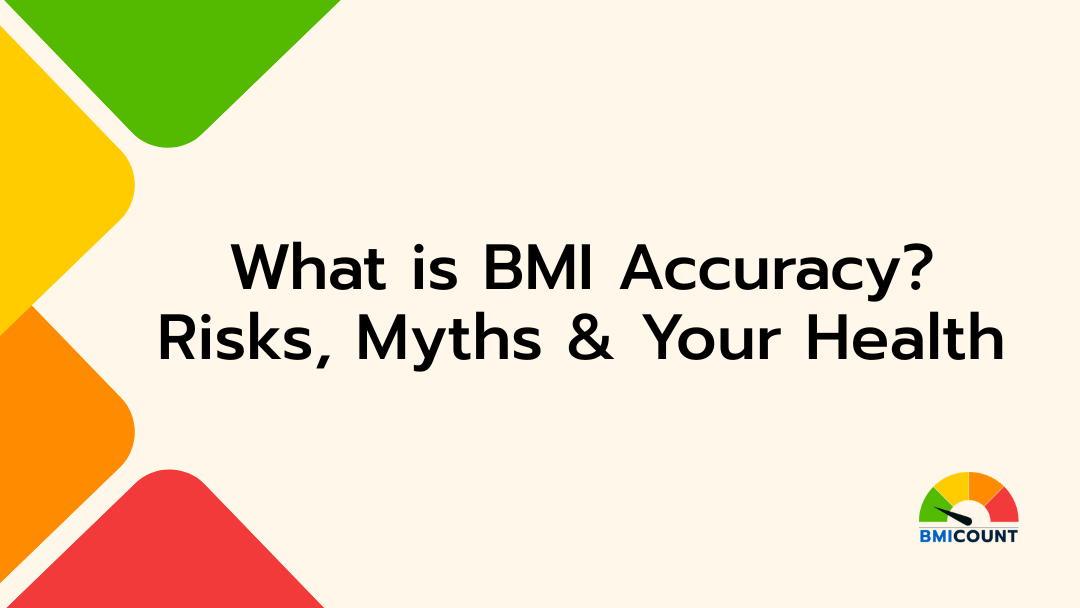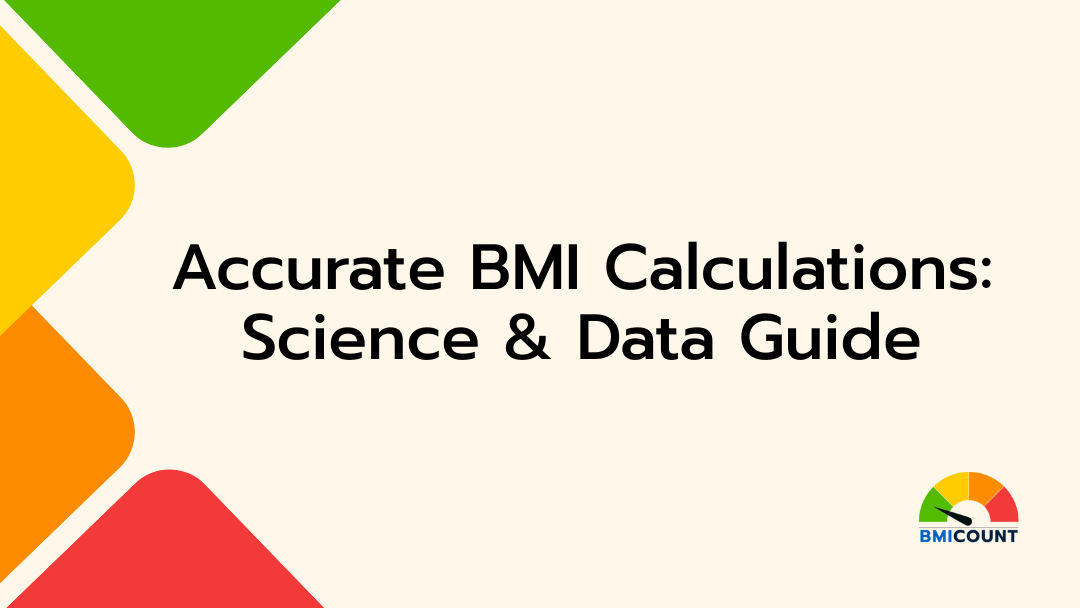Understanding your Body Mass Index (BMI) is just the first step. Discover how balanced nutrition, regular activity, and smart habits are the real keys to lifelong health and well-being.
Understanding BMI and Lifestyle
In the global pursuit of health, the Body Mass Index (BMI) stands as a widely recognized screening tool. For a complete understanding of what BMI is, how it’s calculated, and its nuances, refer to our foundational guide. Derived from your height and weight, it offers a quick assessment of whether your weight might fall into categories such as underweight, healthy weight, overweight, or obesity. To find out your own BMI, you can use our general BMI calculator. Organizations like the World Health Organization (WHO) and the U.S. Centers for Disease Control and Prevention (CDC) utilize BMI for broad population health assessments. However, it’s vital to grasp BMI’s core function: it is a screening indicator, not a definitive diagnostic tool.
A single numerical value, while informative, cannot fully encapsulate an individual’s health status. BMI does not distinguish between muscle mass and fat, nor does it account for critical variations in body composition, age, gender, or ethnic background. This is especially important when considering how to calculate BMI for men, calculate BMI for women, BMI for kids, or BMI for teens, and also for senior adults BMI, as their unique physiological differences impact interpretation. This is precisely where BMI and lifestyle interventions become paramount. Your BMI, whether it signals a healthy BMI range or indicates an area for focus, is profoundly shaped by your daily decisions concerning nutrition, physical activity, sleep patterns, and stress management. This comprehensive guide will explore the intricate connection between your BMI and lifestyle factors, empowering you to move beyond a simple number and actively cultivate sustainable habits for enhanced health and vitality.
The Interplay: How Your Lifestyle Influences Your BMI
Why BMI isn’t the Only Measure of Health
While BMI serves as a useful initial screen, relying solely on this metric for a complete health assessment can be misleading. As detailed in our comprehensive guide to understanding BMI, it doesn’t account for body composition, age, or gender, highlighting that true health is multifaceted. The formula, which calculates weight relative to height, doesn’t account for the body’s actual composition. For example, a highly muscular athlete might register a BMI in the “overweight” or “obese” category due to their significant muscle mass, despite possessing very low body fat and excellent cardiovascular fitness. Conversely, an individual with a “normal” BMI might carry a high percentage of body fat and insufficient muscle, a condition sometimes referred to as “skinny fat,” which can carry its own set of health risks.
This distinction underscores that true health is multifaceted. Your lifestyle and BMI choices including your dietary patterns, physical activity levels, sleep quality, and stress resilience – profoundly impact your body composition, metabolic health, and overall well-being, often independently of your BMI. For instance, a diet heavy in processed foods combined with prolonged inactivity can lead to an accumulation of visceral fat (fat around internal organs), even if your BMI remains within a “healthy” range. This highlights that two individuals with identical BMIs can present vastly different health profiles. Therefore, while BMI can serve as a valuable initial prompt, a holistic evaluation of your lifestyle and BMI factors is essential to accurately gauge and actively shape your health.
Fueling Your Body: The Profound Impact of Diet on BMI
Diet stands as a primary determinant of your body’s composition, energy levels, and overall health, directly influencing your BMI. It’s not just about calorie quantity, but critically about the quality and balance of nutrients consumed. A thoughtful approach to nutrition is the bedrock for managing a healthy BMI weight and reducing health risks, irrespective of your current BMI. Understanding how food fuels your body and how different nutrients contribute to your health goals is fundamental for sustainable well-being.
Calories: The Energy Equation
Calories are units of energy obtained from food and beverages, powering every bodily function. The core principle linking calories to weight, and thus to BMI, is the energy balance equation:
- To maintain your current weight (and BMI): Calorie intake approximately equals calorie expenditure.
- To lose weight (and potentially lower BMI): Calorie intake is consistently less than calorie expenditure (a calorie deficit).
- To gain weight (and potentially increase BMI): Calorie intake is consistently greater than calorie expenditure (a calorie surplus).
Consistent overconsumption of calories relative to your body’s needs leads to weight gain, increasing your BMI. Conversely, a sustained calorie deficit promotes weight loss and can decrease your BMI. While meticulous calorie counting isn’t universally necessary, grasping this energy balance is crucial. It underscores that even highly nutritious foods, if consumed in excess, can contribute to weight gain. The objective is a balance that supports your body’s activity level without leading to chronic energy surplus.
Macronutrients: Carbs, Proteins, and Fats
Beyond total calories, the source of those calories – the balance of macronutrients – significantly impacts satiety, metabolism, body composition, and overall health, all influencing your BMI.
- Carbohydrates: Your body’s primary energy source. Prioritize complex carbohydrates found in whole grains, fruits, vegetables, and legumes. Their fiber content promotes satiety, regulates blood sugar, and supports digestive health. Limit simple carbohydrates (sugary drinks, white bread, processed snacks) which offer rapid energy spikes followed by crashes, contributing to fat storage and cravings.
- Proteins: Essential for building and repairing tissues, enzyme and hormone production, and maintaining muscle mass. Adequate protein intake enhances satiety, which can help prevent overeating, and aids in preserving metabolically active muscle during weight loss. Sources include lean meats, poultry, fish, eggs, dairy, legumes, and nuts.
- Fats: Vital for hormone production, nutrient absorption, and organ protection. Emphasize healthy fats (monounsaturated and polyunsaturated fats found in avocados, nuts, seeds, olive oil, fatty fish). Restrict unhealthy fats (saturated and trans fats) common in processed foods, as they can negatively impact cardiovascular health and inflammation. Healthy fats are calorie-dense, necessitating moderation.
A balanced intake of whole, unprocessed foods, rich in complex carbohydrates, lean proteins, and healthy fats, is widely recognized by global health authorities (e.g., WHO, national dietary guidelines across Tier 1 countries) as optimal for supporting a healthy BMI and overall well-being. This approach champions nutrient density, fostering satiety and providing essential building blocks for a healthy body.
Best foods to maintain a healthy BMI
To effectively manage your BMI and support overall vitality, prioritize a diet abundant in whole, unprocessed foods. These provide essential nutrients, fiber, and naturally promote satiety, aiding in healthy calorie intake without strict counting.
- Fruits and Vegetables: Rich in vitamins, minerals, antioxidants, and fiber, offering high nutrient density with low caloric impact. Aim for a wide variety of colors.
- Whole Grains: Such as oats, brown rice, quinoa, and whole wheat. Their intact fiber content aids digestion, stabilizes blood sugar, and provides sustained energy.
- Lean Proteins: Including poultry, fish, eggs, legumes (beans, lentils), and plant-based options like tofu. Protein is crucial for muscle maintenance and promoting a feeling of fullness, helping to prevent overeating.
- Healthy Fats: Found in avocados, nuts, seeds, and olive oil. These are vital for nutrient absorption, hormone function, and providing sustained energy. Consume them in moderation due to their calorie density.
Consistently choosing these nutrient-dense foods allows you to naturally reduce your intake of added sugars, unhealthy fats, and excessive sodium commonly found in ultra-processed products. This fundamental dietary shift significantly improves your nutrient profile, directly supporting healthy BMI management.
Hydration: More Than Just Water
Often underestimated, adequate hydration is a fundamental component of a healthy lifestyle and subtly yet significantly influences your BMI. Water is essential for virtually every bodily function, including metabolism, digestion, nutrient transport, and temperature regulation.
Does drinking water affect BMI? Directly, water contains zero calories, so it doesn’t add to your energy intake. Indirectly, staying well-hydrated significantly aids BMI management by:
- Promoting Satiety: Drinking water before meals can help you feel fuller, potentially leading to reduced calorie intake.
- Boosting Metabolism: Water is necessary for metabolic processes. Even mild dehydration can slow your metabolism, hindering efficient calorie burning.
- Aiding Digestion: Water assists your body in breaking down food, absorbing nutrients, and flushing out waste.
- Reducing Caloric Intake: Swapping sugary beverages (sodas, sweetened juices) for water can drastically cut down on empty calories, a major contributor to weight gain.
Global health recommendations generally suggest consuming adequate fluids throughout the day, typically around 2-3 liters (8-12 glasses), though individual needs vary based on activity level, climate, and health status. Make water your primary beverage choice.
Mindful Eating: A Sustainable Approach
Beyond what you eat, how you eat profoundly impacts your relationship with food and its effect on your BMI. Mindful eating is the practice of paying full, non-judgmental attention to your food – its flavors, textures, aromas, and the physical and emotional sensations of eating. It’s about being present, rather than eating on autopilot.
What is mindful eating? Mindful eating involves:
- Eating Slowly: Allowing your brain sufficient time to register fullness signals (which typically takes about 20 minutes).
- Savoring Each Bite: Fully appreciating the sensory experience of your food.
- Listening to Your Body: Differentiating true hunger cues from emotional cravings or external triggers.
- Avoiding Distractions: Eating away from screens, work, or other distractions that can lead to unintentional overeating.
- Acknowledging Feelings: Understanding underlying reasons for eating (e.g., boredom, stress, happiness) beyond physical hunger.
Practicing mindful eating fosters a more intuitive approach to food, reducing overconsumption and emotional eating, and promoting healthier portion control. It cultivates a more positive and sustainable relationship with food, which is essential for long-term BMI management and overall well-being.
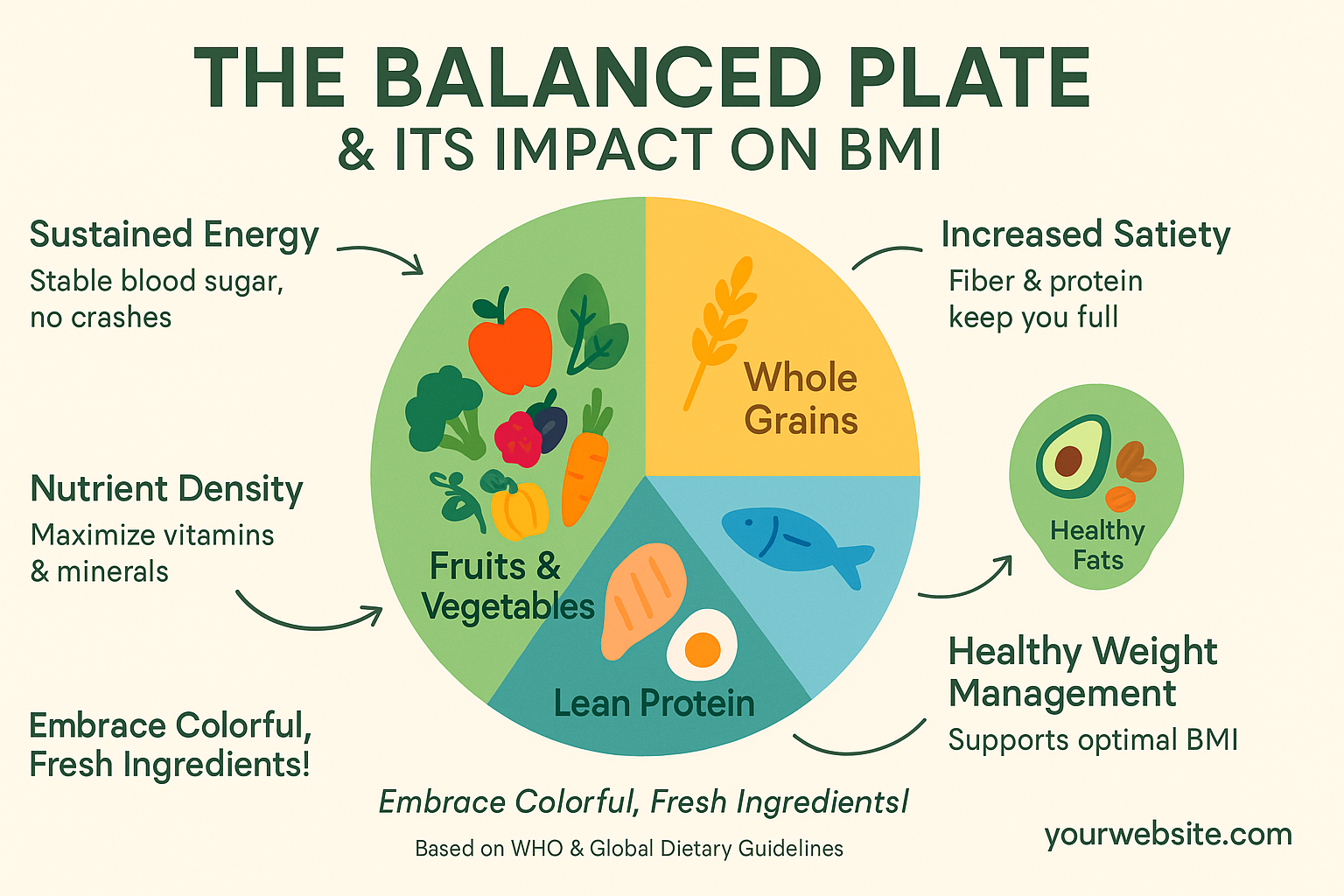
Moving Towards Wellness: Fitness and Your BMI
While diet of BMI often takes center stage in discussions about weight and BMI, physical activity is its indispensable partner. Exercise isn’t merely about burning calories; it fundamentally transforms your body composition, metabolism, mental health, and energy levels, all of which contribute significantly to a healthier BMI and a more vibrant life. Integrating consistent physical activity into your routine is crucial for sustainable health and a balanced relationship with your body.
The Science of Exercise and Weight
The benefits of exercise extend far beyond the number on the scale or your BMI calculation. Understanding the underlying science reveals why physical activity is so potent for long-term health and weight management.
Beyond Calorie Burning: Muscle Mass and Metabolism
Often, when people start exercising, they focus solely on how many calories they’re burning during a workout. While calorie expenditure is certainly a factor, the profound impact of exercise, particularly strength training, lies in its ability to alter your body composition.
- Muscle is Metabolically Active: Unlike fat, muscle tissue requires more energy to maintain, even at rest. This means that building and preserving muscle mass through activities like weightlifting, bodyweight exercises, or resistance training boosts your resting metabolic rate (RMR). A higher RMR means your body burns more calories throughout the day, even when you’re not actively exercising.
- Improved Insulin Sensitivity: Regular exercise, especially resistance training, helps improve your body’s sensitivity to insulin, the hormone responsible for regulating blood sugar. Better insulin sensitivity means your cells can absorb glucose more efficiently, reducing the likelihood of excess sugar being stored as fat.
Does exercise change BMI? Yes, exercise for BMI can change your current BMI, but often not in the way people expect. For instance, if you significantly increase muscle mass through strength training, your weight might increase or stay the same even as you lose body fat. This could potentially keep your BMI stable or even slightly increase it, even though your body composition and overall health have dramatically improved. This illustrates why BMI alone doesn’t tell the whole story; it doesn’t differentiate between muscle and fat. However, for most individuals, consistent aerobic exercise for BMI combined with strength training will lead to a healthier body composition and often a reduction in BMI over time, particularly if excess body fat is lost.
Cardiovascular Health and Endurance
Aerobic or cardiovascular exercise (like brisk walking, running, swimming, cycling, dancing) strengthens your heart and lungs, improving their efficiency. This not only directly burns calories but also:
- Enhances Stamina: Allows you to engage in daily activities with more energy and less fatigue.
- Improves Blood Flow: Delivering oxygen and nutrients more effectively throughout your body.
- Reduces Risk of Chronic Diseases: Regular cardio significantly lowers the risk of heart disease, type 2 diabetes, and certain cancers, all of which are often correlated with higher BMIs.
- Supports Fat Burning: During moderate-intensity aerobic activity, your body efficiently uses stored fat as a primary fuel source.
Integrating Fitness into Daily Life
The best exercise routine is one you can stick to consistently. Integrating physical activity doesn’t require hours at the gym; it’s about finding what works for you and making movement a regular part of your life.
How much should I exercise to lower my BMI?
To effectively lower your BMI and improve overall health through exercise, global health organizations like the World Health Organization (WHO) and the U.S. Centers for Disease Control and Prevention (CDC) provide clear guidelines. For most adults, these recommend aiming for at least 150 minutes of moderate-intensity aerobic activity (such as brisk walking, dancing, or cycling) or 75 minutes of vigorous-intensity aerobic activity (like running, swimming laps, or high-intensity interval training) per week.
Beyond cardiovascular exercise, it’s crucial to incorporate muscle-strengthening activities on two or more days per week that work all major muscle groups (e.g., weightlifting, bodyweight exercises like push-ups and squats, or resistance band workouts). This combination is vital because building muscle boosts your resting metabolism, aiding in fat loss and improving body composition, which directly influences your BMI over time.
While these are general guidelines, individual needs vary. Consistency is paramount: even short, regular bursts of activity (e.g., 10-minute walks throughout the day) contribute significantly to your weekly total and are often more sustainable than infrequent, grueling workouts. For substantial BMI reduction or specific health goals, gradually increasing duration or intensity beyond these minimums can be beneficial, always listening to your body and considering professional advice.
Finding Your Fit (Enjoyment Matters)
Sustainability in exercise comes from enjoyment. If you dread your workouts, you’re less likely to stick with them.
- Explore Diverse Activities: Try different forms of movement—yoga, dancing, hiking, team sports, swimming, cycling, martial arts, or even active gardening.
- Mix It Up: Combine various types of exercise to keep things interesting and work diverse muscle groups.
- Socialize: Join a fitness class, find a workout buddy, or participate in group activities. Social support can boost motivation.
Overcoming Sedentary Lifestyles
In today’s world, many professions involve prolonged periods of sitting, contributing to a sedentary lifestyle which is a significant risk factor for various health issues, regardless of BMI.
How does a sedentary lifestyle affect BMI? A sedentary lifestyle directly impacts BMI and overall health by:
- Lowering Calorie Expenditure: Burning fewer calories throughout the day, making weight gain more likely.
- Reducing Muscle Mass: Lack of activity can lead to muscle atrophy, further slowing metabolism.
- Increasing Risk of Chronic Diseases: Even if your BMI is “normal,” prolonged sitting is linked to increased risks of heart disease, type 2 diabetes, and certain cancers.
- Negative Impact on Metabolism: Studies show that long periods of inactivity can negatively affect blood sugar control and fat metabolism.
Actionable Tips to Combat Sedentarism:
- Take Regular Breaks: Stand up, stretch, or walk for 5-10 minutes every hour.
- Use a Standing Desk: Alternate between sitting and standing throughout the day.
- Walk More: Take stairs instead of elevators, park further away, walk during phone calls.
- Incorporate Movement: Do short bursts of bodyweight exercises during breaks.
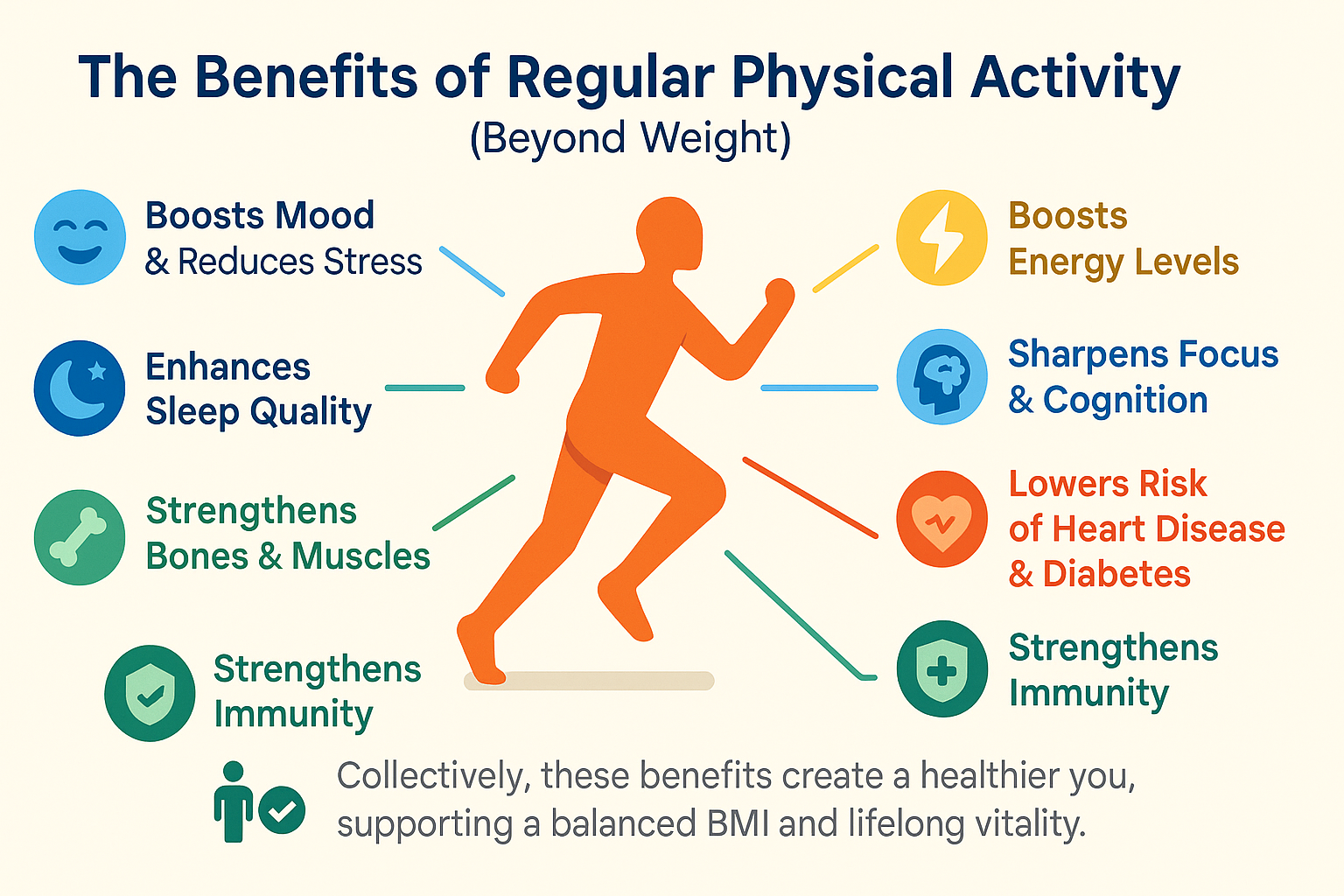
Holistic Health: Healthy Habits Beyond Diet for BMI and Exercise for BMI Management
While diet for BMI and exercise are foundational, a truly holistic approach to health, and by extension, managing your BMI, considers other essential lifestyle factors. Sleep quality and stress management, often overlooked, exert a powerful influence on your hormones, metabolism, and overall well-being, indirectly but significantly affecting your weight and body composition.
The Crucial Role of Sleep
Adequate and quality sleep is not a luxury; it’s a fundamental biological necessity. Consistently depriving yourself of sufficient sleep disrupts the delicate balance of hormones that regulate your appetite, metabolism, and fat storage.
Does sleep affect BMI? Yes, sleep profoundly affects BMI by influencing:
- Leptin and Ghrelin: Sleep deprivation decreases leptin (the hormone signaling fullness) and increases ghrelin (the hormone stimulating appetite). This imbalance leads to increased hunger and cravings, particularly for calorie-dense foods.
- Cortisol: Insufficient sleep elevates cortisol, the stress hormone. Chronically elevated cortisol promotes fat storage, especially around the abdomen.
- Insulin Sensitivity: Inadequate sleep can impair your body’s sensitivity to insulin, hindering blood sugar regulation and increasing the risk of weight gain.
- Metabolism: Sleep deprivation can slow down your metabolism, making efficient calorie burning more challenging.
- Energy Levels and Motivation: Feeling tired inherently reduces your inclination to engage in physical activity.
Recommendations for Better Sleep Hygiene (Globally Recognized):
- Aim for 7-9 hours of quality sleep per night (for most adults).
- Maintain a consistent sleep schedule (even on weekends).
- Create a relaxing bedtime routine (e.g., reading, warm bath).
- Ensure your bedroom is dark, quiet, and cool.
- Avoid caffeine and alcohol close to bedtime.
- Limit screen time before bed (the blue light can interfere with melatonin production).
Managing Stress for a Healthy BMI Body
Stress, an inherent part of modern life, triggers a cascade of hormonal responses that can undermine even diligent dietary and exercise efforts.
How does stress impact weight? Chronic stress significantly impacts weight and BMI through:
- Cortisol: Elevated cortisol levels due to stress not only promote fat storage but also increase appetite, often leading to cravings for sugary and fatty “comfort foods.”
- Emotional Eating: Stress can trigger emotional eating, where food serves as a coping mechanism rather than satisfying true hunger.
- Reduced Physical Activity: Stress often drains energy and motivation for exercise.
- Sleep Disruption: Stress frequently disrupts sleep, further exacerbating hormonal imbalances and contributing to weight gain.
Effective Stress Management Techniques (Globally Recognized):
- Mindfulness and Meditation: Practices that promote relaxation and help lower cortisol levels.
- Deep Breathing Exercises: Simple, immediate techniques to calm the nervous system.
- Regular Physical Activity: Exercise itself is a potent stress reliever.
- Spending Time in Nature: Studies suggest that exposure to natural environments reduces stress hormones.
- Social Connection: Engaging with loved ones provides crucial emotional support.
- Hobbies and Relaxation: Dedicating time to enjoyable activities helps mitigate stress.
The Power of Consistency and Patience
It’s crucial to acknowledge that sustainable changes in BMI and overall health are rarely achieved rapidly. They are the cumulative result of consistent effort and unwavering patience.
- Focus on Long-Term Habits: Embrace lifestyle changes that are sustainable for years, not merely weeks.
- Celebrate Small Victories: Acknowledge and reward yourself for positive steps, even if immediate scale changes are not apparent.
- Learn from Setbacks: Occasional slips are a part of any journey; don’t let them derail your overall progress.
- Avoid Comparisons: Focus on your individual journey, acknowledging that everyone’s path to health is unique.
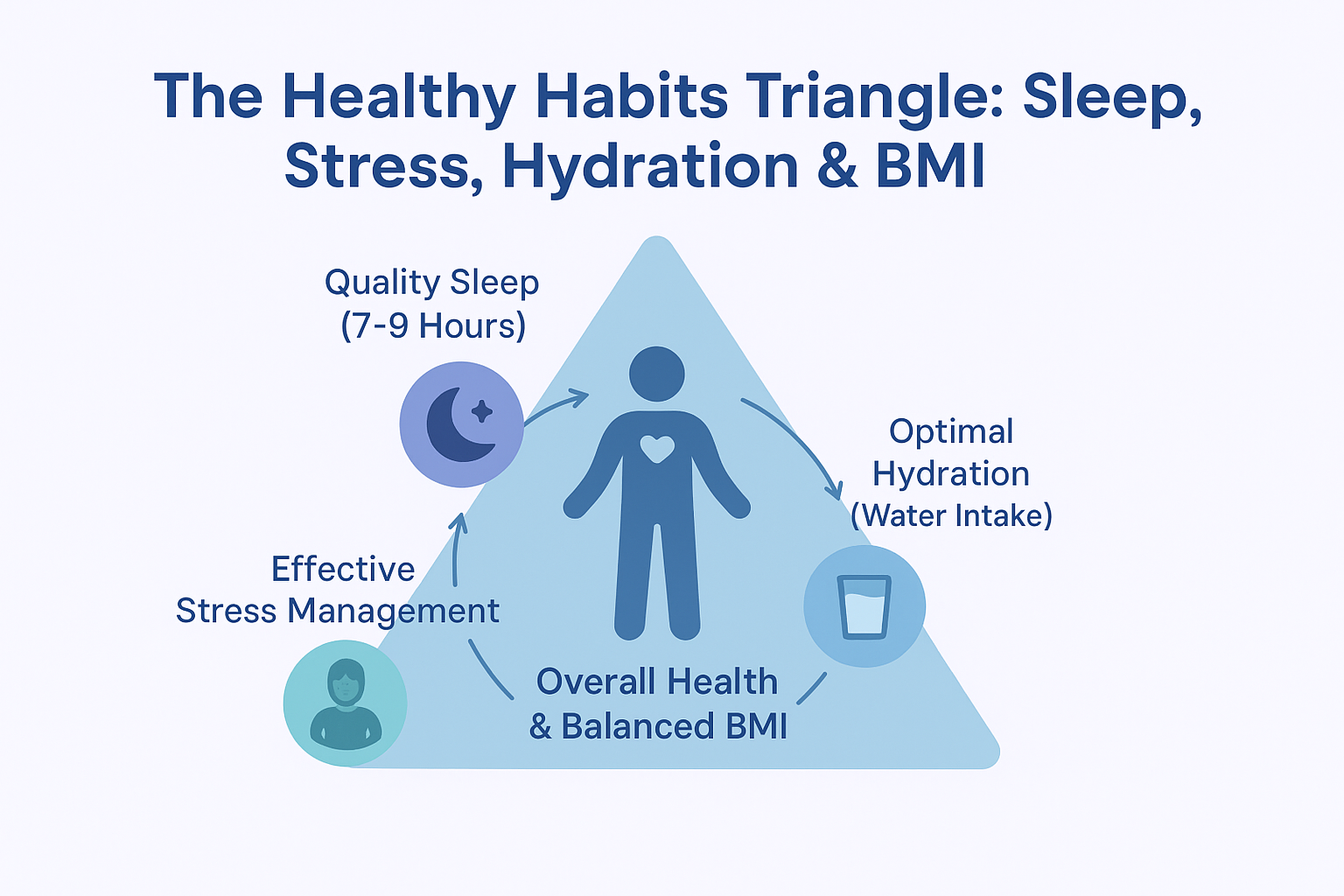
Putting It All Together: Your Personal Health Journey
Understanding BMI, diet for BMI, fitness, sleep, and stress management individually is powerful. The true strength, however, lies in recognizing how they all interact and contribute to your unique health picture. Your health journey is personal, and interpreting your BMI must be done through the lens of your comprehensive lifestyle choices.
Interpreting Your BMI Holistically
As we’ve explored, BMI serves as a screening tool, not a definitive diagnosis. A single number cannot fully capture the nuances of your body composition, genetics, or individual health history. When you receive a BMI reading, rather than viewing it as a sole determinant, use it as a prompt to reflect on your broader lifestyle.
Consider your BMI in conjunction with key factors such as your dietary patterns, physical activity levels, waist circumference (which indicates abdominal fat), family health history, and your overall energy and well-being. For instance, an individual with a slightly higher BMI but consistent healthy habits (balanced diet, regular exercise, adequate sleep) may exhibit better metabolic health than someone with a “normal” BMI who leads a sedentary life and consumes highly processed foods. This perspective underscores that while a healthy BMI range is generally associated with lower health risks at a population level, individual health is a complex tapestry woven from many threads. The ultimate goal isn’t solely to achieve a specific BMI, but to cultivate sustainable habits that support lifelong health and resilience, with a healthy BMI often emerging as a natural outcome of these positive choices.
When to Seek Professional Guidance
While this guide provides comprehensive information, it is not a substitute for personalized medical advice. Healthcare is complex, and individual needs vary significantly.
- For Personalized Assessment: If you have concerns about your BMI, weight, or overall health, consult with a doctor or a registered dietitian. They can conduct a thorough assessment, which may include body composition analysis, blood tests, and a detailed review of your lifestyle and medical history.
- For Custom Nutrition Plans: A registered dietitian or clinical nutritionist can help you develop a personalized meal plan tailored to your health goals, dietary preferences, and any medical conditions.
- For Safe Exercise Routines: For those new to exercise or with underlying health conditions, a certified fitness trainer or physical therapist can create a safe and effective exercise program.
- For Chronic Stress or Sleep Issues: If chronic stress or persistent sleep problems are impacting your life, seeking guidance from a mental health professional or sleep specialist can provide valuable strategies and support.
Remember, healthcare professionals can offer tailored advice, help you set realistic goals, and provide the accountability and support necessary for successful, sustainable lifestyle changes.
Frequently Asked Questions
Can I have a “normal” BMI but still be unhealthy?
Yes, absolutely. This phenomenon is often referred to as “skinny fat” or “TOFI” (Thin Outside, Fat Inside). An individual with a “normal” BMI might still carry a high percentage of body fat and inadequate muscle mass, which can increase risk for metabolic diseases despite appearing healthy.
What is the single most important lifestyle change for BMI?
There isn’t one. Sustainable BMI management requires consistency in diet, exercise, sleep, and stress management. Small, consistent improvements across these areas lead to lasting results.
How quickly can I expect to see changes in my BMI from lifestyle changes?
Healthy BMI changes are gradual. While water weight may shift quickly, fat loss typically takes weeks or months. A safe rate is 0.5–1 kg per week. Building muscle may also change your body without altering BMI much.
Is a vegetarian/vegan diet better for BMI management?
It can be effective, especially if rich in whole foods. But poor-quality plant-based diets can also lead to weight gain. The key is balance and nutrition quality, whether plant-based or omnivorous.
Should I count calories religiously to manage my BMI?
Calorie counting helps some, but isn’t essential for everyone. Mindful eating, focusing on whole foods, and tuning into hunger and fullness cues is often more sustainable.
Does sleep affect BMI?
Yes. Poor sleep affects hormones that control hunger and metabolism, often leading to weight gain. Getting 7–9 hours of quality sleep supports BMI and health.
Can stress impact my weight or BMI?
Yes. Chronic stress increases cortisol, which can lead to fat storage and cravings. Managing stress helps support a healthy BMI and weight stability.
Is BMI useful if I’m gaining muscle?
Not always. BMI doesn’t distinguish muscle from fat. Active individuals may see higher BMI even with low body fat, so body composition is a better indicator in these cases.
Conclusion: Embracing a Lifestyle for Lifelong Wellness
Your Body Mass Index, while a useful screening tool, is ultimately a dynamic reflection of the intricate interplay between your daily choices and your overall health. It serves as a powerful reminder that true well-being extends far beyond a single numerical measurement. By embracing a holistic approach to your lifestyle – one that actively prioritizes balanced, whole-food nutrition, consistent and enjoyable physical activity, restorative sleep, and effective stress management – you lay the foundational bedrock for not just a healthy BMI, but for a vibrant, energetic, and resilient life.
The journey to optimal health is continuous, marked by small, consistent steps and an unwavering commitment to nurturing your body and mind. Empower yourself with knowledge, listen intuitively to your body’s signals, and never hesitate to seek professional guidance when necessary. Your dedication to cultivating these integrated healthy BMI habits will prove to be your most valuable investment, yielding profound dividends of lifelong wellness and vitality.

